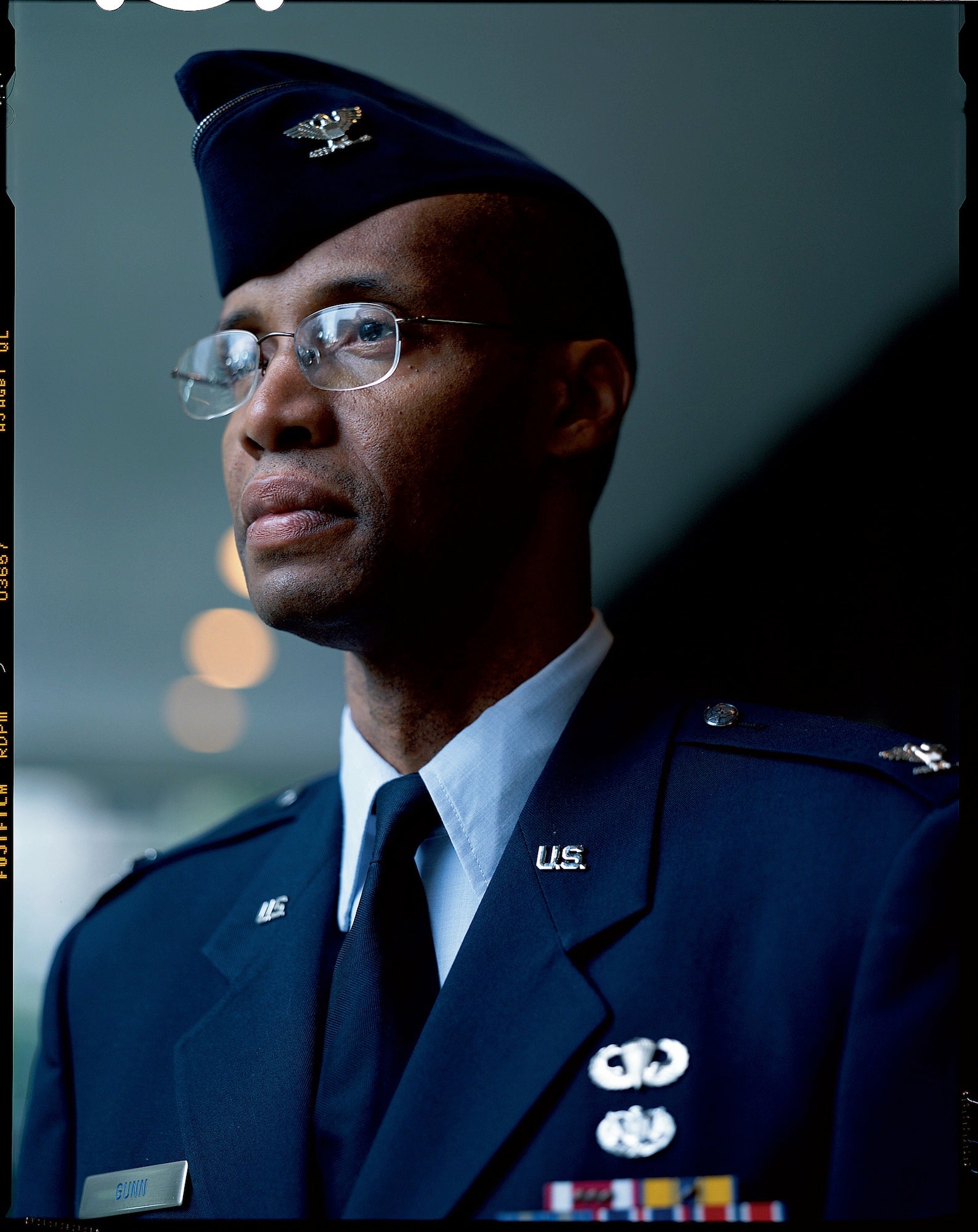Col. Will Gunn ’86 Leads Defense of Enemy Combatants
In a nondescript building in suburban Virginia, two subway stops from the Pentagon, a team of a half dozen or so defense lawyers works on what is perhaps the toughest–and most controversial–legal assignment in America.
One of the few hints of who their clients are is the Navy travel agent upstairs reimbursing trips to Yemen and providing ferry and flight schedules to Guantanamo Bay, Cuba.
These are the attorneys assigned to defend “enemy combatants” detained as part of the war against terror and now awaiting trial before military commissions. The detainees face charges including aiding the enemy and attempted murder by an unprivileged belligerent, and penalties including death. At the helm of the defense team is Col. Will Gunn ’86, a thin, 6-foot-7-inch career military lawyer.
Few lawyers–in or out of uniform–can boast a more impressive resume: One of the first African-American students to attend his Florida middle school and the first to become student body president at his high school, he graduated from the U.S. Air Force Academy, served as a White House Fellow and earned a couple of master’s degrees along the way.
At HLS, he served as president of the Legal Aid Bureau before embarking on a career as a military defense lawyer, a job he’d known he wanted since childhood. “I always had an ability to identify with the underdog,” he said.
For inspiration, he looks to John Adams’ Colonial-era defense of British troops charged with opening fire on a Boston crowd, and to the military lawyers who put their careers at risk to prosecute Lt. William Calley Jr., an officer implicated in the My Lai massacre during the Vietnam War. It’s a sense of duty he found best summarized at the Guantanamo Bay naval base itself in the motto of its joint task force: “honor bound to defend freedom.”
Although Gunn does not represent any of the detainees himself, he selected and supervises the attorneys and works behind the scenes, he says, to ensure the process is “full and fair.” It is a role filled with tension, he admits. He must report to military superiors and also advocate for his team of lawyers and the clients they represent. “That makes life exciting,” he said with a grin.
So far, the military commission process has been less than smooth. At the first hearing in August at Guantanamo, which Gunn attended, confusion reigned as one detainee asked to represent himself. “There are a lot of gaps in the rules,” Gunn said.
The military lawyers Gunn supervises have surprised many observers–and perhaps some within the administration–with their vocal advocacy. His defense lawyers have publicly charged that the commissions’ outcomes cannot possibly be fair and just.
Gunn says his position precludes him from being as outspoken, but he has criticized rules that allow the military to listen to attorney-client conversations and has complained about the inadequate resources provided to the defense. He also signed off on the attorneys’ decision to file an amicus brief in the U.S. Supreme Court last term, in the challenge to the detentions.
That amicus brief proved controversial within the administration, but it was ultimately approved by the Pentagon’s general counsel, Jim Haynes ’83, and White House Counsel Alberto Gonzales ’82.
Gunn’s team has received positive reviews from legal observers. “What I’ve seen so far is a very professional coordinated attack on the jurisdiction of the commissions and on the resources [provided],” said Michael F. Noone Jr., a former military defense lawyer who now teaches law at the Catholic University of America in Washington, D.C. “It’s all the things I would think human rights groups would expect competent defense counsel to go after.”
The aggressive defense has certainly not surprised Gunn, who bristled at any suggestion that military lawyers would be any less zealous than civilian defense attorneys. “I’ve never had any doubt they would receive the very best defense from military defense counsel.”
